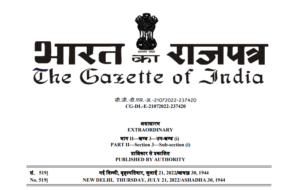
Tobacco and cigarette packs will display a new health warning from 1 December, the union health ministry said. According to the recently amended Cigarettes and other Tobacco Products (Packaging and Labelling) Rules, 2008, new warnings and images will be displayed on the packs of all tobacco products.
According to the ministry, two sets of warning messages and images will be used on both sides of the pack: the first, used in existing packs, Tobacco causes painful death, will be used with image one on one side of the pack, and Tobacco users die young will be on display on the other side of a packet with image 2.
The packs will also have a toll-free helpline, Quit Today Call Today (1800-11-2356), in white font on a black background.
The government is seeking to create awareness among smokers and smokeless tobacco users and offering access to counselling services to help them quit. According to government data, tobacco use causes more than 1.3 million deaths every year. The new health warnings are a welcome step, said experts.
“It’s a proven fact that the lives of tobacco users are shortened by up to 10 years, as compared to non-tobacco users. When the existing warning Tobacco causes painful death was introduced, I suggested adding the word ‘early’ before ‘painful’ to make the warning more impactful. The warnings play a significant role in helping tobacco users quit the habit, as per the latest GATS 2 report of 2016-17,” said Dr S.K. Arora, medical superintendent of the Sanjay Gandhi Memorial Hospital and renowned tobacco control expert.
In the second round of the Global Adult Tobacco Survey (GATS -2, 2016-17), conducted for the age group 15 years and above, 61.9% of cigarette and 53.8% of bidi smokers, besides 46.2% of smokeless tobacco users were considering quitting due to the warning label on packets. The number is significantly higher compared to the 2009-10 figures.
“Enforcement agencies should ensure tobacco products that do not carry such health warnings shouldn’t be sold in the market; otherwise, the legal provisions become futile,” Dr. Arora of Sanjay Gandhi Memorial Hospital said.
To read the full SRO, please click here. For source of news link, please click here.

